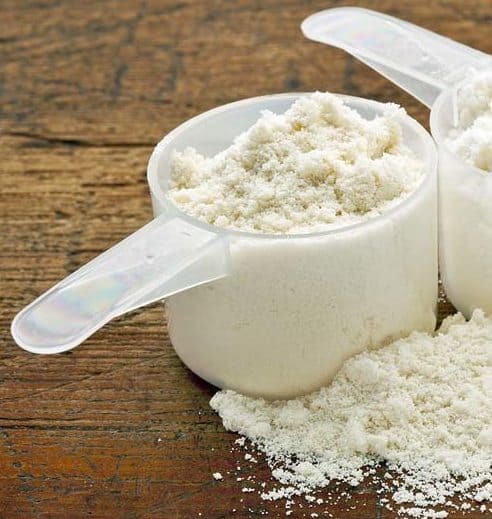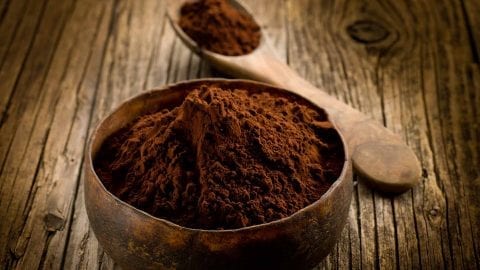Readers Note: The reason I used the term adjuvant in the titles is, while whey appears to be a “no brainer” to use for a wide variety of reasons, it would not, and should not, be viewed as sole approach to the prevention and or reduction of symptoms for this virus. The definition of “adjuvant” is:
- A treatment that enhances an existing medical regimen, as a pharmacological agent added to a drug to increase or aid its effect.
- An immunological agent that increases the antigenic response.
- A person or thing aiding or helping; whatever aids or assists.
Now, on to whey! Studies suggest whey is a highly beneficial adjuvant to cancer treatment, HIV, and other diseases, and likely beneficial with covid. The primary reason for that is whey’s unique ability to raise glutathione (GSH), but whey is an exceedingly complex protein containing a variety of bio-active peptides, as well as bio-active molecules generated by proteases during digestion, some of which have yet to be fully elucidated. In this write up I’m going to rely heavily on linking and use of prior articles as to not repeat myself and end up with an overly lengthy article. For those who want to take deeper dives into the topics briefly discussed, follow the links.
As of 2021, I tend assume pretty much everyone is aware whey is much more than a simple high quality protein source favored by athletes, and my assumptions are wrong. There’s still people out there, both medical professionals and non, who are unaware of the extensive data suggesting whey is a key health promoting food based supplement. For almost thirty years I have been researching the value of whey and its health promoting, immune supporting, disease preventing properties. In case anyone reading this thinks the use of whey as a medicinal food is a new finding, the use of whey protein for medicinal purposes has been prescribed since the time of Hippocrates. In fact, there are two ancient proverbs from the Italian city of Florence that say, “If you want to live a healthy and active life, drink whey,” and, “If everyone were raised on whey, doctors would be bankrupt.”
Now, before I go off on of my whey tangents attempting to cover all the benefits of whey, we need to limit this article to covid. To put a fine point on it, human mother’s milk contains approximately 60% protein as whey and 40% as casein. Cow’s milk on the other hand contains approximately 80% of milk protein as casein and 20% as whey protein.* Personally, I view that as one of various indicators of the importance of whey in humans from day one of our existence, but that’s another discussion for another day.
As alluded to above, a key aspect of whey’s benefits is its impact on GSH. As discussed in my detailed article on adjuvant strategies for treating and or avoiding serious complications from Covid below:
“…a recent paper posits that endogenous deficiency in GSH is the ‘…Most Likely Cause of Serious Manifestations and Death in COVID-19 Patients’”
And:
“…the importance of sustaining GSH levels in the treatment of Covid and its complications – both acute and chronic – can’t be overstated, and that also applies to virtually all viral infections, but appears especially important with covid.”
Full details, sources, etc. on that aspect of whey can be found HERE.
Also as mentioned, whey contains various bio-active peptides and sub-fractions. One of the most promising on various fronts (e.g., immune support, anti-cancer, etc.), but specific to covid for its anti-viral effects, is lactoferrin. Lactoferrin is found in very small amounts in properly produced whey, and can also be taken separately, and I tend to use and recommend both approaches. I go into depth about this peptide specific to its anti-viral properties, as well as links to articles about lactoferrin’s other potential benefits HERE:
“Considering recent events concerning the COVID-19 (Coronavirus) virus, I thought an updated discussion on the anti viral effects of lactoferrin (LF) might be of value. Will taking lactoferrin supplements help prevent or management symptoms specific to this virus? Several recent studies strongly suggest the answer is yes…” Readers should also understand, that’s tip of the iceberg as the various bio-actives found in a correctly produced whey protein, but those are two that stand out for me. Finally, bioactive molecules generated by proteases during digestion. That’s an almost entirely new area of research that’s just starting to really get the attention it deserves, and what’s being discovered is impressive to say the least. A little background before we proceed for context. Covid (SARS-CoV-2) enters cells and begins to do its damage by binding to the ACE2 receptors on the cells surface. That is also a key system – the renin–angiotensin system – as to how the body regulates blood pressure, and dangerous increases in blood pressure (BP) have been reported with covid infections seemingly due to the disruption of the renin–angiotensin system (RAS).
With that in mind, researchers have looked at drugs used to lower BP – ACE inhibitors – as possible candidates for treating covid. Where does whey fit into all that? On digestion of whey, bio-active peptides are created. One of them is a potent ACE inhibitor, which are unique even compared to drugs such as Captopril and Lisinopril used to control BP. It must be noted this was an in vitro (test tube) study vs in vivo (whole living system) study, and more research needs to be done there for sure. However, it should also be noted that there is human data finding the ingestion of whey lowers BP in those with prehypertension and mild hypertension, as well as “…improved vascular reactivity, biomarkers of endothelial function, and lipid risk factors” so there is in vivo proof of concept there. (1).
Below is the abstract of the study just out, and full paper linked for those who wish to get down into the details. Another study just published (2), entitled “Inhibitory effect of whey protein concentrate on SARS-CoV-2-targeted furin activity and spike protein-ACE2 binding in methotrexate-induced lung damage” adds another layer to proof of concept that whey can help prevent lung tissue damage from covid, via several different mechanisms – some of which touched on in the write up. That’s a very exciting and compelling finding in my view.
Finally, whey was shown a benefit to critically ill patients in a paper just published. While this study has some limitations to be sure – being a prospective observational study – when viewed in the context of what we know about whey, the results come as no surprise. The paper entitled “Effect of Whey Proteins on Malnutrition and Extubating Time of Critically Ill COVID-19 Patients” concluded the addition of whey to critically ill patients “…administration of whey protein during COVID-19 patients’ ICU stays can provide fast achievement of protein targets, reducing the duration of mechanical ventilation, and improving inflammatory status and ICU survival.” For those who want to read the details of this important study, it can be found HERE.
Conclusions: Yet again, to sound like a broken record, whey continues to both impress and surprise me with the ever-growing studies being published on a wide variety of potential benefits to human health and disease. One of those benefits may be as a key food supplement for combating Covid adjuvant to approaches both traditional and non and may literally save lives of those critically ill.
Whey-Derived Peptides at the Heart of the COVID-19 Pandemic
Int. J. Mol. Sci. 2021, 22(21), 11662;
Abstract
The renin–angiotensin system (RAS) is a key regulator of blood pressure and hypertension. Angiotensin-converting enzyme 2 (ACE2) and angiotensin-converting enzyme I (ACE) are two main components of the RAS that play a major role in blood pressure homeostasis. The severe acute respiratory syndrome coronavirus 2 (SARS-CoV-2) uses ACE2 as a receptor to enter cells. Despite some controversies, numerous studies have reported a significant association between the use of ACE inhibitors and reduced risk of COVID-19. In our previous studies, we produced and identified peptide sequences present in whey hydrolysates exhibiting high ACE inhibitory activity.
Therefore, the aim of this work is to obtain an improved understanding of the function of these natural peptides as RAS inhibitors and investigate their potential therapeutic role in the COVID-19 pandemic. The molecular interactions between peptides IPP, LIVTQ, IIAE, LVYPFP, and human ACE2 were assessed by employing a molecular docking approach.
The results show that natural whey-derived peptides have a dual inhibitory action against both ACE and ACE2. This dual activity distinguishes these ACE inhibitory peptides from synthetic drugs, such as Captopril and Lisinopril which were not shown to inhibit ACE2 activity, and may represent a potential strategy in the treatment of COVID-19.
Full paper:
https://www.mdpi.com/1422-0067/22/21/11662/htm
(1) Whey protein lowers blood pressure and improves endothelial function and lipid biomarkers in adults with prehypertension and mild hypertension: results from the chronic Whey2Go randomized controlled trial. The American Journal of Clinical Nutrition, Volume 104, Issue 6, December 2016, Pages 1534–1544,
(2) Inhibitory effect of whey protein concentrate on SARS-CoV-2-targeted furin activity and spike protein-ACE2 binding in methotrexate-induced lung damage. J Of Food Biochem, 03 January 2022.
*Those figures can vary somewhat dependent on feed, time of year, and other variables, but the essential aspect of the differences between human mothers milk and cows is accurate for the sake of this discussion.
Will Brink is the owner of the Brinkzone Blog. Will has over 30 years experience as a respected author, columnist and consultant, to the supplement, fitness, bodybuilding, and weight loss industry and has been extensively published. Will graduated from Harvard University with a concentration in the natural sciences, and is a consultant to major supplement, dairy, and pharmaceutical companies.
His often ground breaking articles can be found in publications such as Lets Live, Muscle Media 2000, MuscleMag International, The Life Extension Magazine, Muscle n Fitness, Inside Karate, Exercise For Men Only, Body International, Power, Oxygen, Penthouse, Women’s World and The Townsend Letter For Doctors.
He’s also been published in peer reviewed journals.
Will is the author of the popular e-books, both accompanied by private members forum access , Bodybuilding Revealed & Fat Loss Revealed.
You can also buy Will’s other books on Amazon, Apple iBook, and Barnes and Noble.




